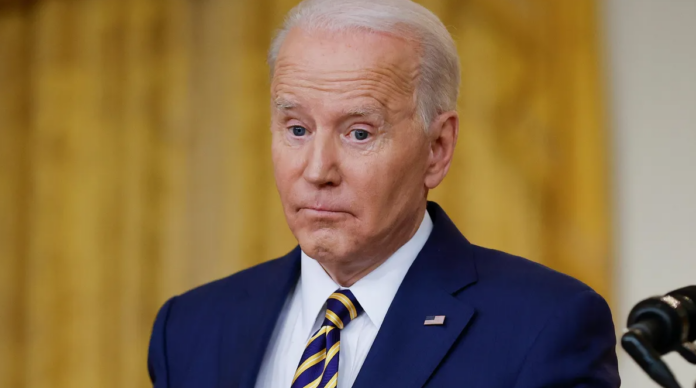The Biden administration has come under fire for quietly waiving a development fee for an energy firm developing an offshore wind project off the coast of Massachusetts. The fee, designed to safeguard taxpayers, was waived by the Bureau of Ocean Energy Management (BOEM) for Vineyard Wind, the first utility-scale offshore wind farm to receive federal approval.
The decision to waive the fee was revealed in internal documents obtained by the watchdog group Protect the Public’s Trust (PPT). The documents showed that the waiver was granted in a June 15, 2021, letter to Vineyard Wind, just one week after the project’s approval by BOEM. This raised concerns of a potential conflict of interest, as former Deputy Interior Secretary Tommy Beadreau had previously represented Vineyard Wind while serving as a partner at Latham & Watkins.
Michael Chamberlain, director of PPT, criticized the administration for potentially showing favoritism towards a firm with close ties to a former DOI official. “For an administration touting itself as the most ethical in history, this represents yet another incident in which Secretary Haaland’s Interior appears to have a tough time living up to that standard,” he said.
The waiver of the development fee, which is mandated by federal statute, would potentially save Vineyard Wind a significant amount of money. The fee is meant to ensure that federal property is restored to its original state after a lessee departs its lease. However, BOEM explained that it was waiving the fee due to risk reduction factors and the project’s use of proven wind turbine technology. They also cited the project’s potential to produce clean energy and promote a “clean energy future” as reasons for granting the waiver.
This admin waived regulations to prop up environmentally & economically destructive offshore wind projects that funnel billions of $$ to foreign energy co’s.
Joe Biden has continually hampered domestic energy production to push his Green New Deal agenda.https://t.co/uHj2iUPhWh
— Congressman Jeff Van Drew (@Congressman_JVD) November 29, 2023
The waiver was deemed crucial by BOEM to ensure Vineyard Wind could secure financing and achieve financial close by August 2021. The 800-megawatt Massachusetts project, a joint venture between Copenhagen Infrastructure Partners and Avangrid, was first proposed years ago but fast-tracked under the Biden administration. It was formally approved in May 2021 and construction began in November 2021.
Since then, BOEM has approved five other utility-scale offshore wind projects as part of President Biden’s goal of deploying 30 gigawatts of offshore wind energy capacity by 2030. However, one of those projects, Ocean Wind 1 off the coast of New Jersey, was canceled in October due to economic factors.
Meanwhile, the Biden administration has taken a different approach toward the oil and gas industry. In July 2021, the DOI announced plans to revise bonding requirements, royalty rates, and minimum bids for onshore fossil fuel leasing, which could potentially raise costs for developers.
Industry experts have expressed concerns over the administration’s actions, with Holly Hopkins, vice president of upstream policy at the American Petroleum Institute, calling it “another attempt to add even more barriers to future energy production” and “a concerning approach” that may further discourage investment.
Neither BOEM nor Vineyard Wind responded to requests for comment on the waiver of the development fee. The Biden administration has yet to address the controversy surrounding the decision.


